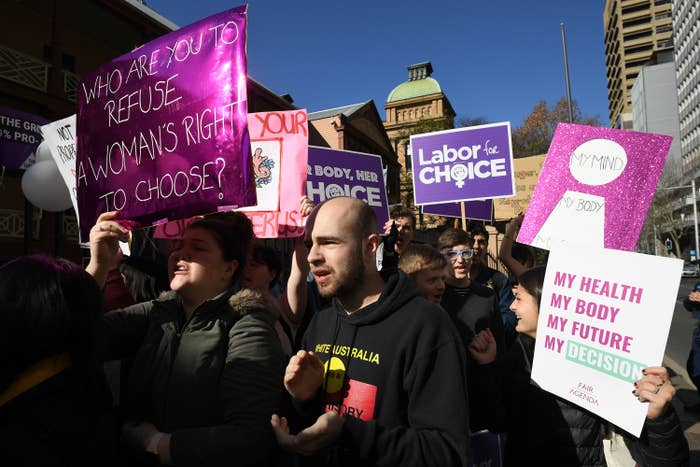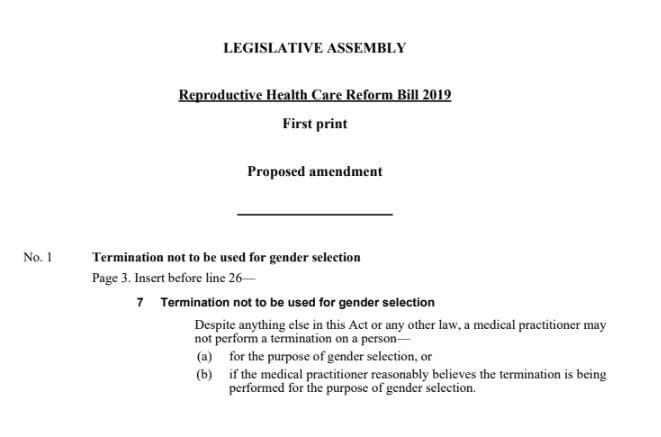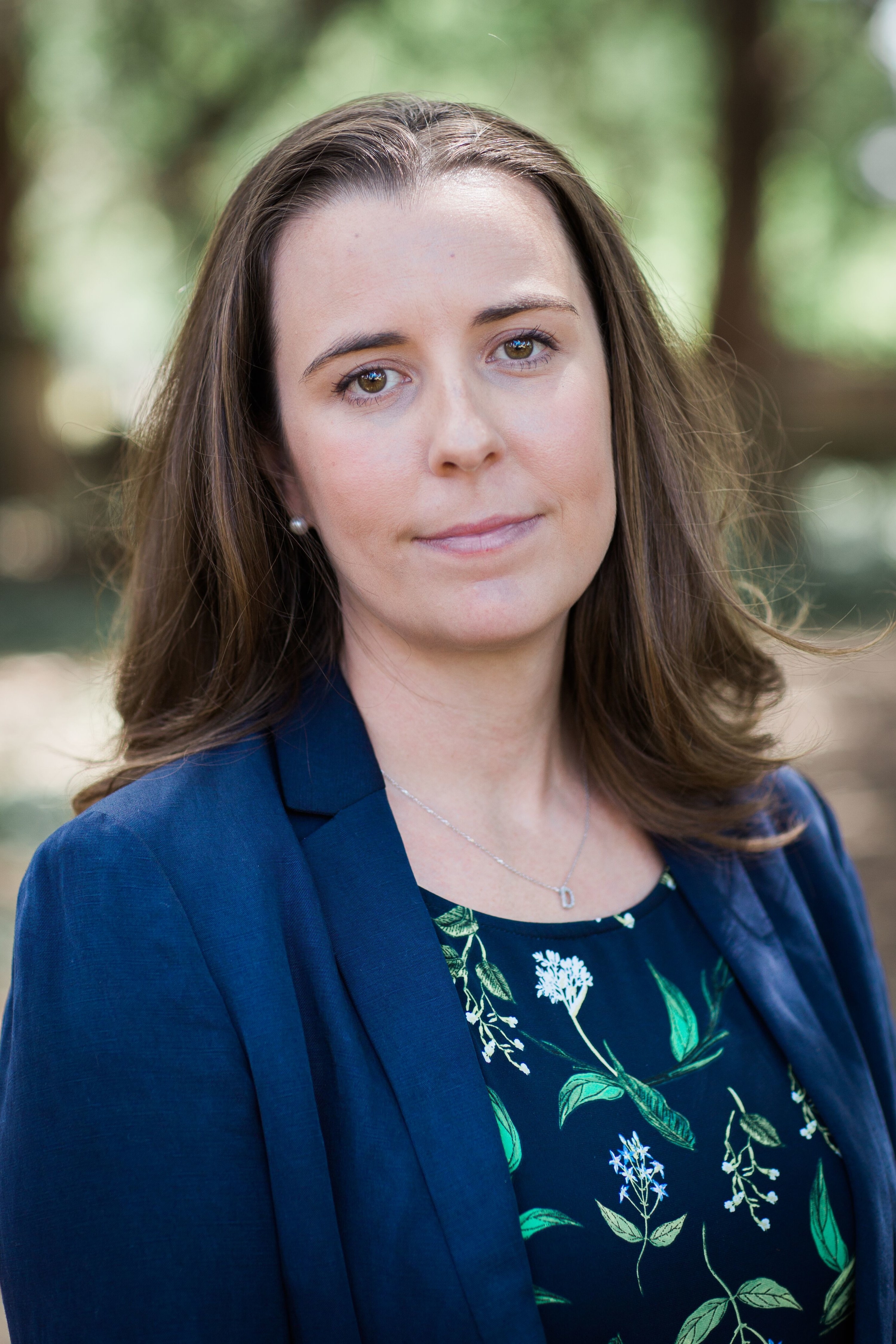
It is one of the most supported pieces of legislation ever to be introduced into the state’s parliament — yet anti-abortion politicians are proposing amendment after amendment to the bill that would remove abortion from the New South Wales Crimes Act.
The bill, co-sponsored by 15 MPs from across the political spectrum, attracted more than a dozen proposed amendments in the lower house — where it passed in early August — and is likely to face many more in the upper house.
BuzzFeed News spoke to doctors who say the amendments are “redundant”, “offensive” and “unworkable”.
Liberal MP and former minister for women Tanya Davies introduced a briefly worded amendment during August’s debate that aimed to ban sex selective abortion — the practice of terminating a pregnancy based upon the predicted sex of the foetus. The amendment states medical practitioners could not terminate a pregnancy if they “reasonably believed” sex selection was the reason.

The NSW vice president of the Australian Medical Association, Dr Danielle McMullen, said this “required doctors to be mind readers”.
“We just can’t know [if someone is terminating a pregnancy due to the sex of the foetus],” McMullen told BuzzFeed News.
“Even now that we can know the sex of the foetus from nine weeks, we would have to have special powers to know if a woman presenting for a termination after nine weeks was doing it for reasons of sex selection.
“It puts an onus on a doctor to be a mind reader and even just to interrogate the woman who is already going through a stressful process.”

McMullen said she was increasingly concerned about the “tenor of the debate” and the “unnecessary” amendments proposed in the lower house and foreshadowed in the upper house.
“The amendments they’re trying to put through are codifying things in legislation that are inappropriate to be in there and are better covered in existing criminal law or existing clinical frameworks,” she said.
Family Planning NSW medical director Dr Deborah Bateson said her organisation supports the bill as it was introduced and hopes it passes through the state’s upper house without further amendments, including any more on sex selective abortion. She said the bill was drafted on best practice and draws on models that are “working very well” in Queensland and Victoria.
“As doctors we have had many years of training and work within a highly regulated ethical framework, following clear clinical guidelines, and we are held accountable for not fulfilling our professional obligations,” Bateson told BuzzFeed News.
“While we all agree this is a sensitive area of health, doctors are trained to deal with many sensitive areas of health and this idea of regulating abortion in a different way to all other medical procedures perpetuates the shame and stigma around abortion.”

Davies’ sex selective abortion amendment did not pass, but another amendment requiring NSW Health to review whether there was evidence of the practice taking place did. Bateson supports the collection of any “meaningful data in health” but said there is no evidence sex selection was occurring in Australia and “certainly not in NSW”, and that the amendment is “out of step with expert advice”.
A study analysing births in Victoria (where abortion was decriminalised in 2008) between 1999 and 2015 found that the overall ratio of male-to-female babies was as expected (about 105 boys to 100 girls), but there was some variation in migrant communities. For example, mothers born in China had about 108 boys to every 100 girls.
Anti-abortion advocates have used the La Trobe University study to argue that the NSW bill would encourage sex-selective abortions, but the university has said the study is inconclusive on whether sex-selective abortions are actually taking place.
“It is useful to note the authors of the La Trobe study have said their study has been misquoted and misused with a view to create concern about sex selection,” Bateson said.
Davies claimed during the debate that women from “Indian, Chinese and Southeast Asian migrant communities” would abort female foetuses because of a “son preference”.
President of the Royal Australian and New Zealand College of Obstetricians and Gynaecologists (RANZCOG), Vijay Roach, said Davies’ emphasis on these communities highlighted who would be affected by such legislation.

“How can you say this would not lead to racial profiling?” Roach asked BuzzFeed News. “We know that most of the world has a gender bias toward males and we understand that is a complex social issue, but [under this proposed amendment] you’d be profiling anyone walking in to your room according to their race or religion, which is completely unworkable and incredibly damaging to the doctor-patient relationship.”
While difficult to police, sex selective abortion is not allowed under the Australian government's National Health and Medical Research Council Ethical Guidelines on the use of Assisted Reproductive Technology in Clinical Practice and Research. The guidelines do not support sex selection of embryos, except for rare circumstances to reduce the risk of transmission of a serious genetic condition.
Roach stressed that prior to the introduction of this bill “abortion healthcare was being delivered within a safe, ethical and regulated healthcare framework, and removal of abortion from the Criminal Code does not change that fact”.
“Legislating medical practice is restrictive for patients and doctors and if doctors are providing appropriate care under the current framework, why wouldn’t that continue?”
Meanwhile, BuzzFeed News understands an amendment might be introduced in the upper house to create a separate criminal offence for anyone who pressures a woman into having a termination.
Roach argued such an amendment is “redundant” as intimidation is already a criminal offence in NSW.
“It is illegal to coerce someone full stop,” he said. “Coercion of women is something that occurs and it is unacceptable, whether it is financial, sexual or reproductive, but that is something that is covered by the criminal code, so why are they choosing this one part of medicine to make this point?
“The downside of putting that into this bill is that, again, you potentially make the doctor an instrument of the law who then becomes responsible for identifying domestic violence and coercion.”
Roach said the intention of the bill is to remove abortion from the criminal code, support women in their right to access healthcare, and “reassure doctors” they are practicing within the law.
“Currently doctors practice within a highly regulated ethical and moral clinical framework, and to legislate the way doctors practice risks limiting access to healthcare for women and changing the way doctors practice, while undermining the confidence of the public in the medical system and the doctors who provide care.”
One of the amendments that was successful in the lower house (passing 49-41) — even though it was opposed by the bill’s 15 co-sponsors — was a statutory requirement for doctors to gain “informed consent” before performing abortions.
All four doctors interviewed for this article said this amendment was meaningless as doctors already obtain informed consent for any procedure.
University of Sydney associate professor and academic gynaecologist Dr Kirsten Black said the amendment was “completely redundant” and, like many of the other amendments, perpetuated the idea that doctors weren’t “acting in good faith”.

“It is up to the professional medical bodies to regulate bad behaviour and strike people off, it is not up to the law,” Black, who is also a RANZCOG fellow, told BuzzFeed News.
A woman and her doctor can be convicted for an unlawful abortion and imprisoned for up to a decade in NSW, but case law has established that abortion is lawful in the state if the doctor has an honest opinion that continuing the pregnancy would be seriously harmful to the health of the woman.
The proposed legislation establishes that having an abortion is not a criminal offence and allows abortions on request by a registered doctor for up to 22 weeks gestation, beyond which the patient would need the consent of two doctors.
The bill is expected to be debated in the upper house in September.
